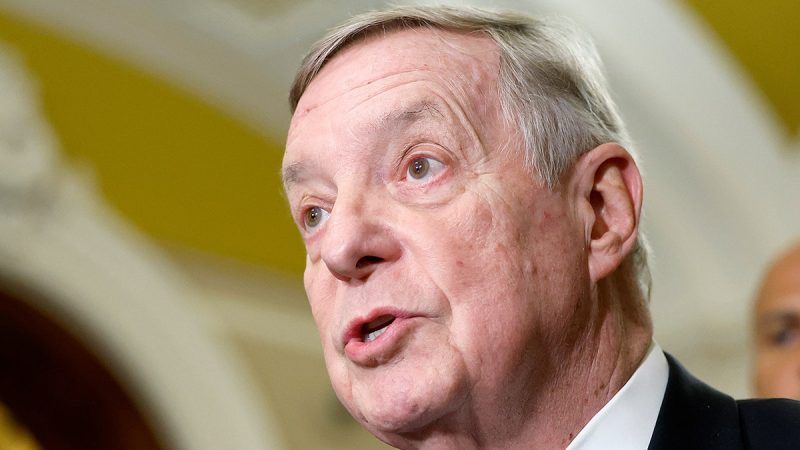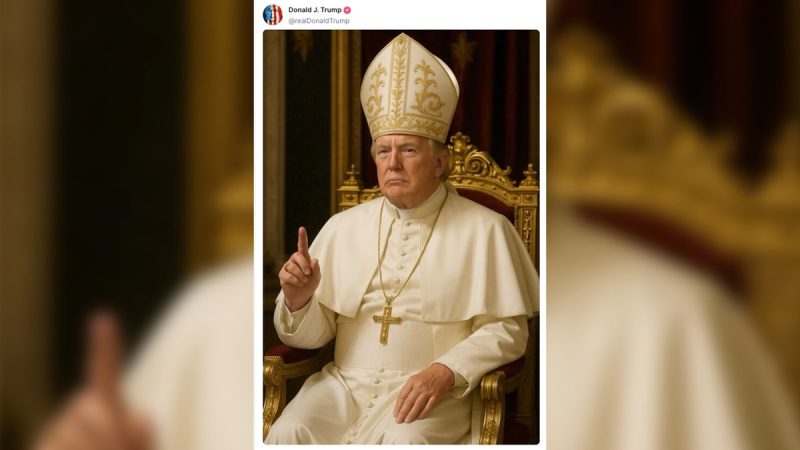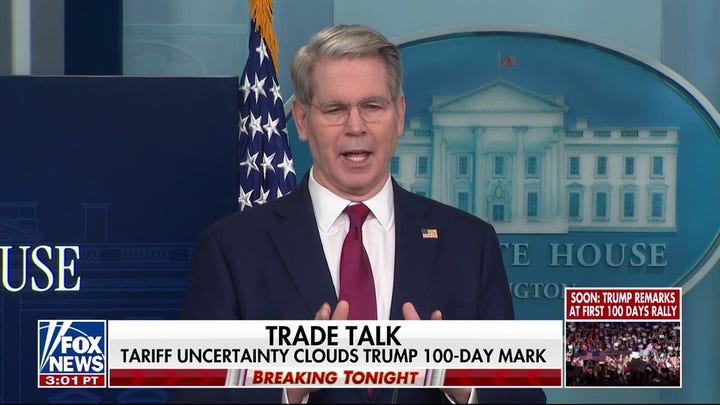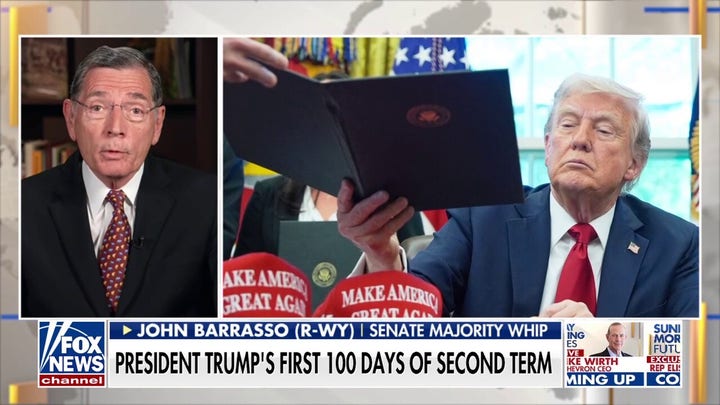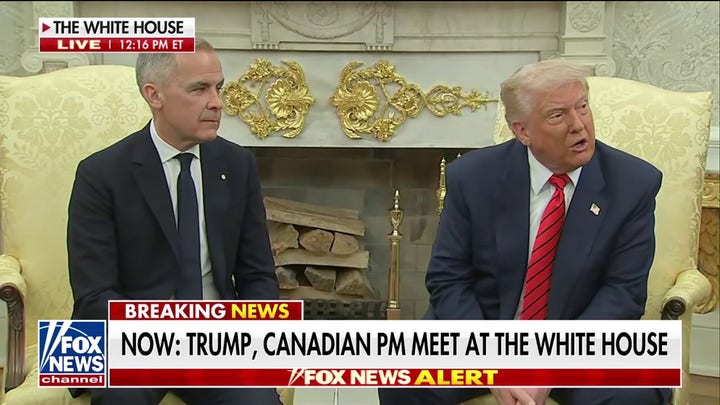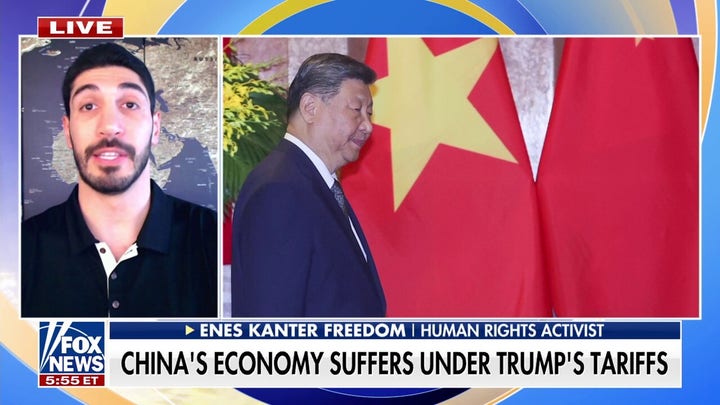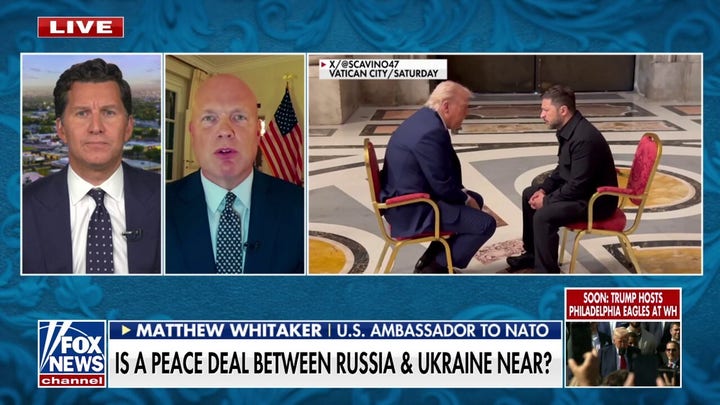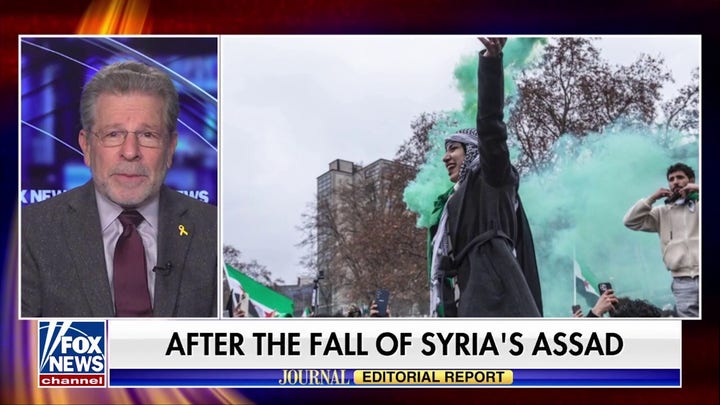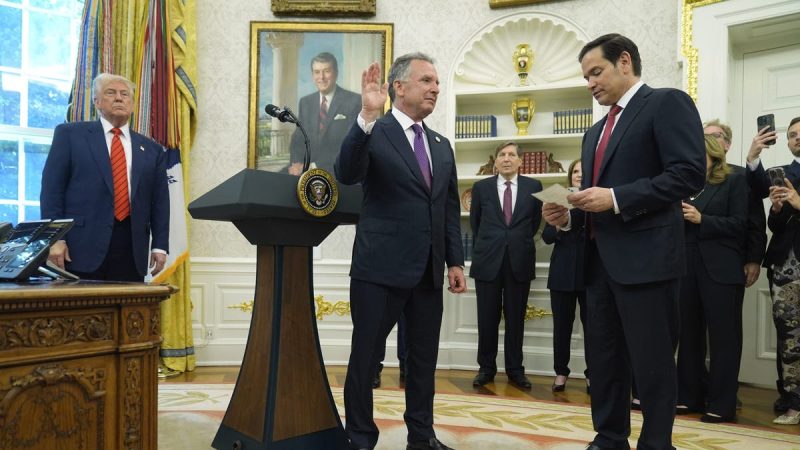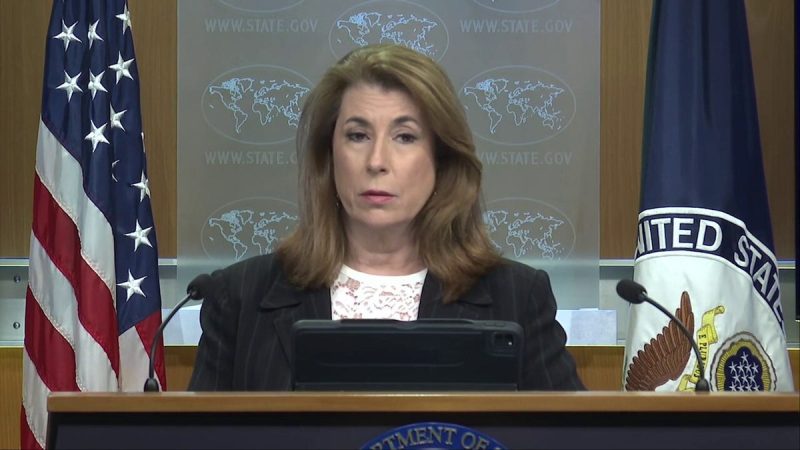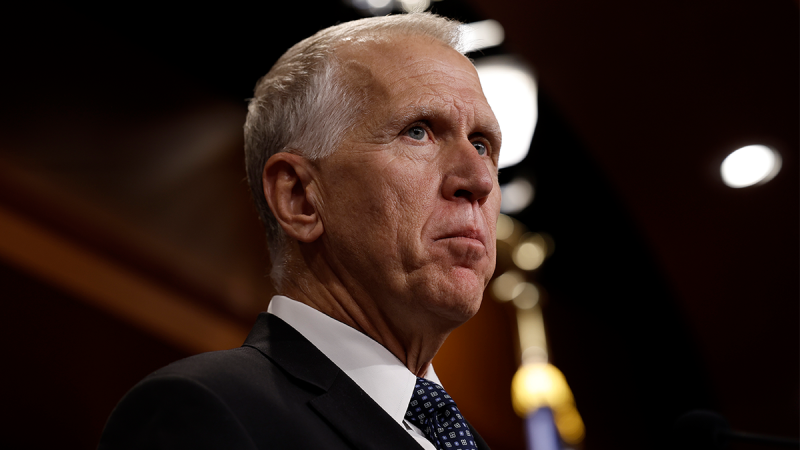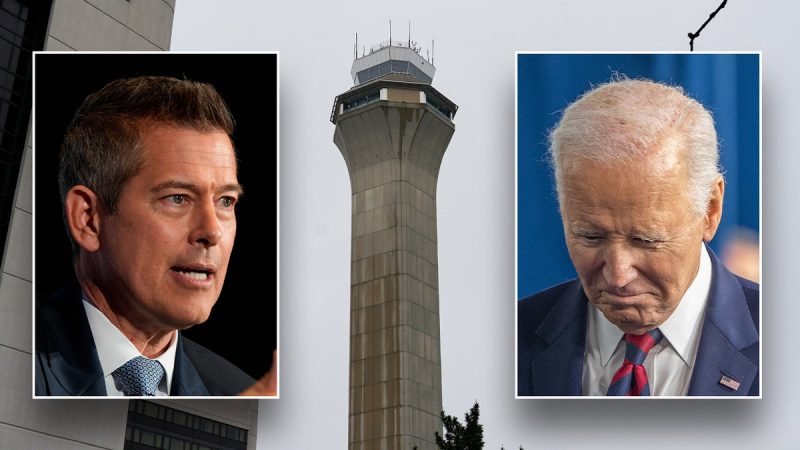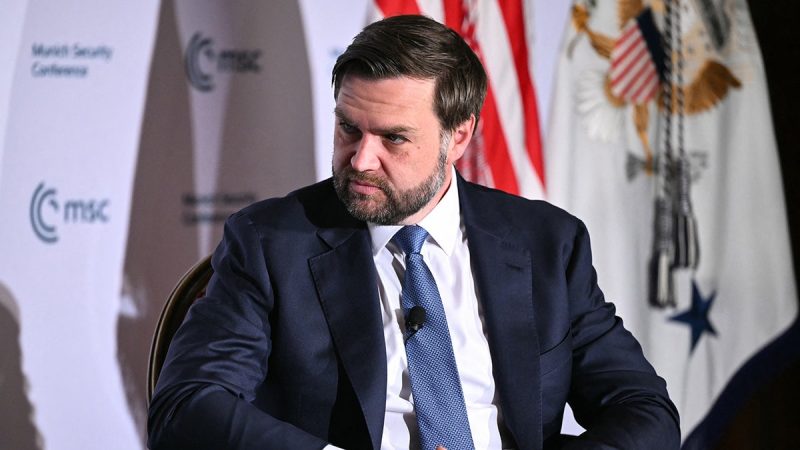
Vice President JD Vance previewed the next round of U.S.-Iran nuclear talks on Wednesday, saying President Donald Trump would be ‘open’ to sitting down with Chinese and Russian officials in the future to prevent proliferation.
U.S. and Iranian officials are scheduled for a fourth round of nuclear talks in Oman in the coming days. Trump will visit the Middle Eastern countries of Saudi Arabia, Qatar and the United Arab Emirates next week.
At the Munich Leaders Meeting in Washington, D.C., on Wednesday, former German ambassador to the U.S., Wolfgang Ischinger, asked Vance if the administration would ‘go for zero enrichment’ by Tehran and noted the unresolved ‘Gaza issue.’
Vance cited ‘two big issues’ with the Joint Comprehensive Plan of Action (JCPOA), the formal name of the Iran nuclear deal secured in 2015 during the Obama administration.
Trump has said the flawed deal did not prevent Iran from building an atomic bomb. The vice president on Wednesday added that former President Barack Obama’s agreement had ‘incredibly weak’ enforcement regarding inspections, and he, therefore, didn’t believe ‘it actually served the function of preventing the Iranians from getting on the pathway to nuclear weapons.’
Secondly, Vance said the Trump administration believes there were some elements of the Iranian nuclear program that were actually ‘preserved’ under the JCPOA.
‘Yes, there weren’t nuclear weapons. Iran doesn’t have a nuclear weapon,’ Vance said, arguing the deal ‘allowed Iran to sort of stay on this glide path towards a nuclear weapon if they flip the switch and press go.’
‘We think that there is a deal here that would reintegrate Iran into the global economy,’ Vance said ahead of the talks. ‘That would be really good for the Iranian people, but would result in the complete cessation of any chance that they can get a nuclear weapon. And that’s what we’re negotiating towards. And as the president has said, that’s Option A.’
If Option A is ‘very good for the Iranian people,’ Vance offered that Option B ‘is very bad.’
‘It’s very bad for everybody. And it’s not what we want, but it’s better than Option C, which is Iran getting a nuclear weapon. That is what is completely off the table for the American administration. No ifs, ands or buts,’ Vance said.
Trump told NBC’s ‘Meet the Press’ in an interview that aired Sunday that he would only accept ‘total dismantlement’ of Iran’s nuclear program.
The vice president on Wednesday said the Trump administration’s broader objective is to prevent nuclear proliferation, noting that he believes the president would be ‘open’ to sitting down with China and Russia down the road.
‘If Iran gets a nuclear weapon, which country then next gets a nuclear weapon, and then when that country gets a nuclear weapon, which country after that? We really care not just about Iran, but about nuclear proliferation,’ Vance said. ‘The president hates nuclear proliferation. I hate nuclear proliferation. And I think that the president would be very open to sitting down with the Russians and the Chinese and saying, ‘look, let’s get this thing in a much better place. Let’s reduce the number of nuclear weapons that are in the world writ large.’ That’s obviously not a conversation for tomorrow. That’s a conversation, God willing, for a few years from now.’
‘But there is no way you get to that conversation if you allow multiple regimes all over the world to enter this sprint for a nuclear weapon,’ Vance added. ‘And we really think that if the Iran domino falls, you’re going to see nuclear proliferation all over the Middle East. That’s very bad for us. It’s very bad for our friends. And it’s something that we don’t think can happen.’
As for negotiations with Iran, Vance gave a grade of ‘so far, so good,’ thanking intermediaries, including the Omanis, for ensuring that the talks are ‘on the right pathway.’
‘But this is going to end somewhere, and it will end either in Iran eliminating their nuclear program — their nuclear weapons program,’ Vance said. ‘They can have civil nuclear power. Okay. We don’t mind that. But let me ask this basic question – which regime in the world has civil nuclear power and enrichment without having a nuclear weapon? And the answer is no one.’
‘So our proposition is very simple. Yes, we don’t care if people want nuclear power. We’re fine with that. But you can’t have the kind of enrichment program that allows you to get to a nuclear weapon. And that’s where we draw the line.’
Trump announced on Tuesday that the U.S. military, which has been bombing Iran-backed Houthis since March 15 to defend freedom of navigation, would stop its strikes on the Yemen-based terror group, which communicated it does ‘not want to fight’ anymore. The Houthis claimed responsibility for a missile launched from Yemen that struck near the main terminal of an Israeli airport last weekend hours before the Israeli Cabinet voted to expand fighting in Gaza.
From the Oval Office on Tuesday, Trump also teased a ‘very, very big announcement’ happened before his Middle East trip, but declined to clarify the subject, besides saying it ‘wasn’t necessarily about trade.’



